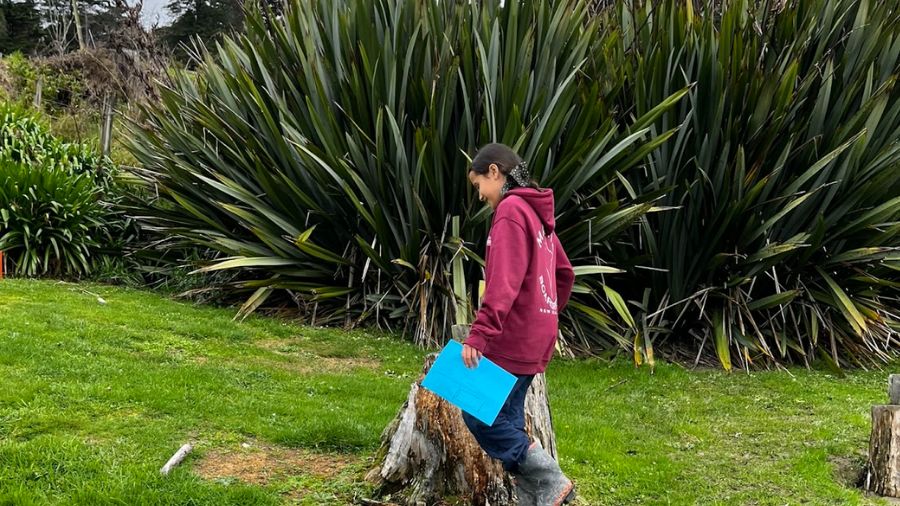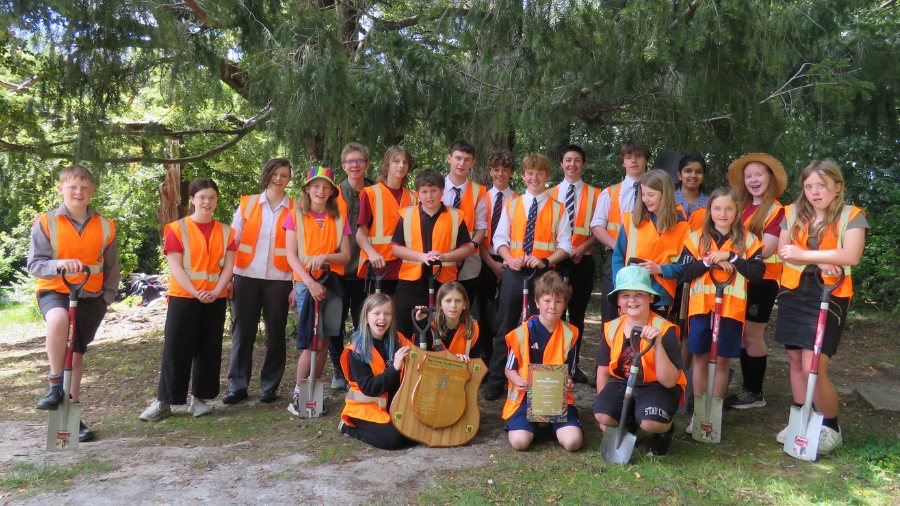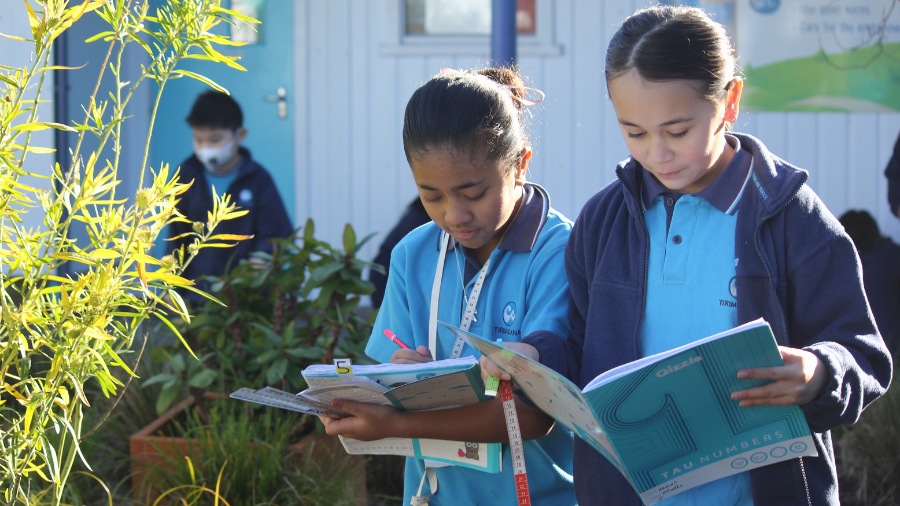Celebrate Connecting with Our Seas
Seaweek 2025 will run from Saturday 1st March - Sunday 9th March and is the perfect opportunity to explore and learn more about your local beach, estuary, or harbour.
We are lucky to have a huge range of resources, tools and education providers focused on connecting ākonga with our precious marine environments. Find something that is relevant for you and your ākonga by clicking on the links within the sections below.
Resource Snapshot
As you start planning your learning for Term One, check out these new or updated resources which help support learning and connection with our local marine ecosystems.

The Beach Activity Book by Rachel Haydon, illustrated by Pippa Keel
Celebrating Sea Creatures of Aotearoa Poster and "Creature Conversation" short articles from Seaweek with illustrations by Giselle Clarkson.
Ocean Literacy Educators Guide for students aged 10 years and over, produced by Seaweek.
21 Day Challenge from Young Ocean Explorers for ākonga in Yrs 1 - 8, starting on Feb 28th. This includes resources, activities and lesson plans.
Our Seas Our Future have education resources aimed at students of all ages.
The NZ Seashore Guide by Sally Carson and Rod Morris, with a link to teacher notes with activities.
Respect for Tangaroa and Hinemoana
How can we engage with our ocean and beaches in ways that keep us safe, while protecting and enhancing the mauri of these precious ecosystems?
We can start by learning the names used by mana whenua for significant places in our local area and ask whānau and ākonga if they have stories or pūrākau they can share about local waterways. What are the messages that have been passed down and how do these relate to activities you might do in each area? The article "What Māori place names can tell us about water safety" can help you explore this topic further.
Kia Maanu Kia Ora is a water safety and place-based learning resource that includes lesson and inquiry plans in Te Reo Māori and English, aimed at Kura Kaupapa Māori and also applicable for English-medium ākonga in Years 1 -8.
Turning the Tide is a documentary series highlighting stories of people improving the health of our moana, produced as part of the Sustainable Seas National Science Challenge. One of the episodes features Kura Paul-Burke discussing her research and work to restore mussel beds using a mātauranga Māori-led approach.
The Science Learning Hub has curated a wide range of Seaweek resources, including unit plans and materials to support teachers with contexts such as: Healthy Seas - Healthy People, and Mātauranga Māori and the moana.
Field Trips and Citizen Science

Can you walk to your local beach? Make a plan to get out and explore the rock pools, sandy shore or muddy estuary on your doorstep.
You don't have to be an expert, just encourage ākonga to notice the plants, animals, shells, and water and use simple sensory activities to focus their attention. Learn alongside them and role model your own curiosity and excitement for the natural world.
For older students we recommend the Marine Metre Squared citizen science tool and Sustainable Coastlines Litter Intelligence education programme. If you're based in Wellington explore the Love Rimurimu project resources and stories.
Taking Action
Once you've connected with your local beach and discovered what's happening in your area, it's important to empower ākonga with opportunities for positive action. This could be as simple as taking some bags on your next exploration walk or field trip, so each person can pick up one piece of rubbish, or you could encourage students to contact their local council or environmental education provider to help organise a community clean up.
Organisations such as Experiencing Marine Reserves, Project Jonah and Sustainable Coastlines offer marine programmes across most of Aotearoa and you may also find local groups working in your area who are happy to connect with schools.
Our Seas Our Future offer free beach clean up kits for schools and you can also access education resources to support students from Yrs 1 - 13.
Adopting your local beach or stream and making a plan to reduce waste in your school and wider community can provide opportunities for long-term action and inquiry learning that is local and relevant to your students. Read the stories below for inspiration.
Early Childhood: Enviroschools story "Community leadership on waste reduction emerges from a love of local places" about Imagine Childcare in Petone.
Primary - Intermediate: Education Gazette article "Enviro-changemakers take action" about South New Brighton School, Ōtautahi.
Secondary: Litter Intelligence (Sustainable Coastlines) article "The power of storytelling" about Campion College, Gisborne.
Te Marautanga o Aotearoa: Education Gazette article "Te Kura Moana - citizen science in action in te ao Māori" about rangatahi in Te Ūpoko o te Ika a Māui who worked alongside Te Aho Tū Roa and Mountains to Sea Wellington.
Virtual Exploration
If you're not able to get out to your local beach or explore the hidden world under the water, you could take part in one of the free LEARNZ virtual field trips:
March 3rd: Love Rimurimu
Travel to Te Upoko-o-te-Ika-a-Māui, the Wellington region, to explore the vital role of rimurimu in marine ecosystems and the importance of seaweed restoration. Learn about mātauranga Māori and the deep cultural connections to rimurimu which has been used for centuries as a source of food, medicine, and material in daily life.
Check out the NZ Marine Studies Centre webcams and interactive marine surveys.
Experience marine virtual reality with New Zealand Geographic and contact BLAKE to find out about VR programmes in schools.
Watch some inspiring videos from Young Ocean Explorers.
Seaweek Events
Visit the Seaweek events page to find out what's happening in your local area and follow the Seaweek Facebook page to stay updated.
You could also organise your own event to help your community learn about, celebrate and protect your local beach. Get in touch with the Seaweek team through their website if you would like them to help promote your event.






